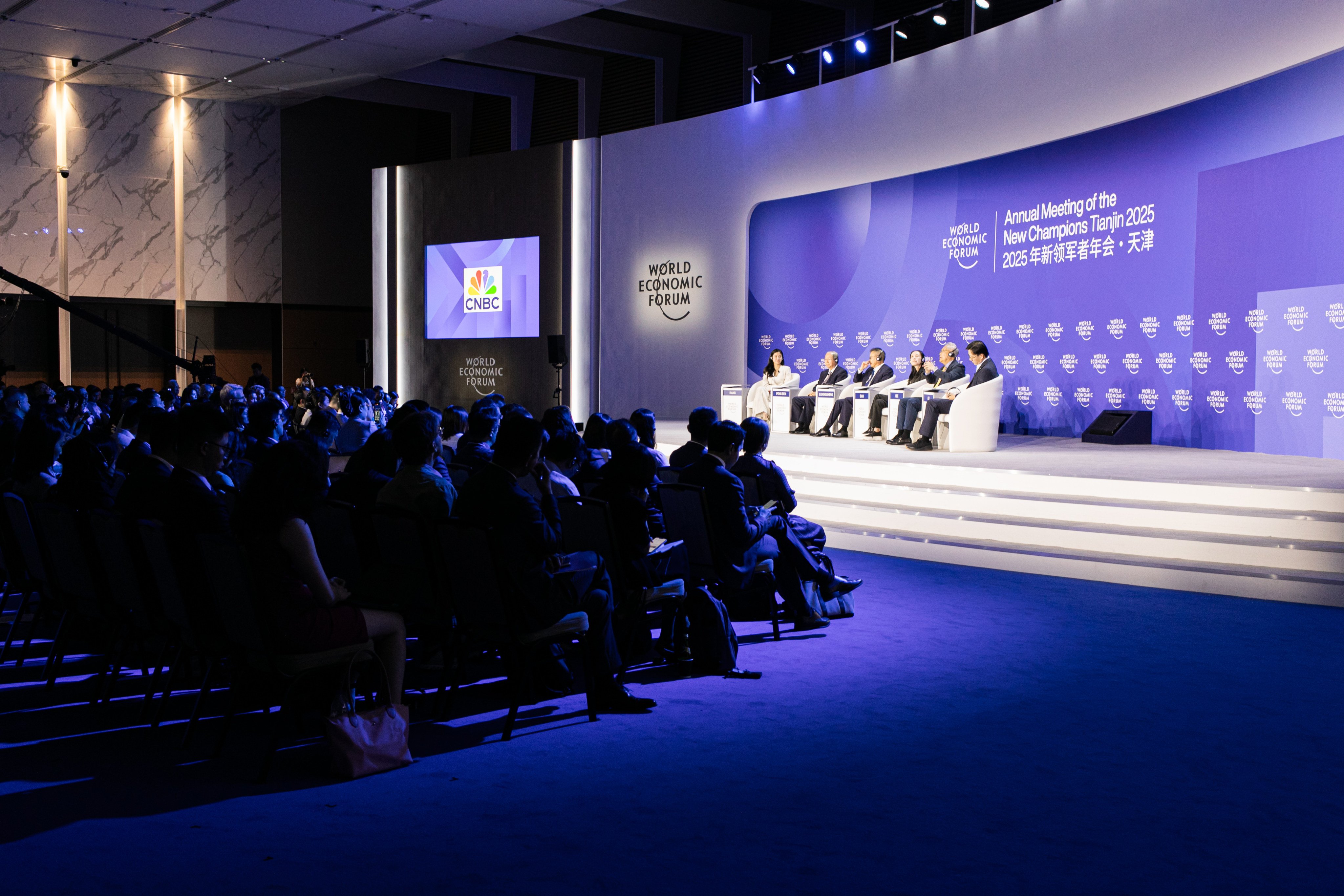China’s firms must integrate to succeed abroad, executives say at ‘Summer Davos’
Executives say China’s companies should fully relocate production to secure supply chains against tariffs, trade restrictions as they expand

Chinese companies should relocate their entire manufacturing ecosystems – rather than just completing the assembly of goods in another country – to solidify their overseas expansions, industry insiders said during the Annual Meeting of the New Champions in Tianjin.
With uncertainty over global trade on the rise in the second term of US President Donald Trump, Chinese companies will look to strengthen the resilience of their supply chain by building factories in new markets, either for export or local sale, said Ben Simpfendorfer, partner and chief Asia-Pacific macro strategist at consulting firm Oliver Wyman.
“We’re moving to a world where tariffs are generally higher. Trade tensions will worsen – not just between China and the US, but potentially between other countries as well,” said Simpfendorfer on Tuesday during the World Economic Forum event, also known as “Summer Davos”.
“In order to avoid tariffs entirely … we actually might see a larger part of the Chinese ecosystem move abroad.”
China’s manufacturers began relocating their supply chains overseas during Trump’s first term. To mitigate the fallout from his tariff increases, they started building plants in Southeast Asia and gradually expanded their footprints to countries like Mexico and Morocco.
But Washington does not want these countries to become reliable bypass routes for Chinese products. Under Trump’s initial “Liberation Day” tariff package, unveiled on April 2, some countries in the Association of Southeast Asian Nations (Asean) would have been subject to higher duties than China.
They avoided this fate after the US paused those higher rates for 90 days to placate global markets, instead applying a “baseline” 10 per cent increase to nearly all its trading partners.
Therefore, Chinese companies are incentivised to invest in more value-added production in regions like Asean, Simpfendorfer said.
Compared to other emerging destinations, the Southeast Asian bloc can still be a top option for Chinese firms as long as US tariffs on the region are not excessive, he said.
“It’s very difficult to replace Asean’s scale and connectivity to China. Asean is twice as big as Mexico, six times as big as Morocco or Turkey,” Simpfendorfer said.
Li Dongsheng, founder and chairman of electronics giant TCL – one of the first Chinese manufacturers to build overseas plants – said the company has reshaped its globalisation plan over the past decade. Now more than simply evading tariffs, the company seeks to deepen its ties with local markets for long-term growth.
“Our globalisation strategy involves cultivating independent TCL entities across multiple overseas markets,” Li said at a panel discussion on Tuesday.
“Their growth helps develop local supply chains and contributes to the regional economy, including job creation and tax revenue. Only this kind of globalisation – where Chinese companies become genuine local players – can earn broader international recognition.”
While it has been “extremely difficult” for businesses to make plans in recent months as circumstances are continuously changing, Li said, he considers globalisation the inevitable direction of corporate development.
Building a resilient ecosystem with local partners is essential to the sustainable overseas operations of Chinese companies, said Dany Qian Jing, global vice-president for Jinko Solar. One of the biggest solar panel manufacturers in China, the company has factories in the US, Vietnam and Malaysia, and is planning to open a fourth in Saudi Arabia.
“No one company has all the ideas, all the resources, all the talent … that’s why we need partners, especially local partners … so we can synergize,” said Qian at the panel.
Liu Zongchang, rotating CEO of Foxconn Industrial Internet, added that Chinese manufacturing giants will also entice their domestic suppliers – many of them small and medium-size companies – to join them in foreign countries to build a reliable local supply chain.